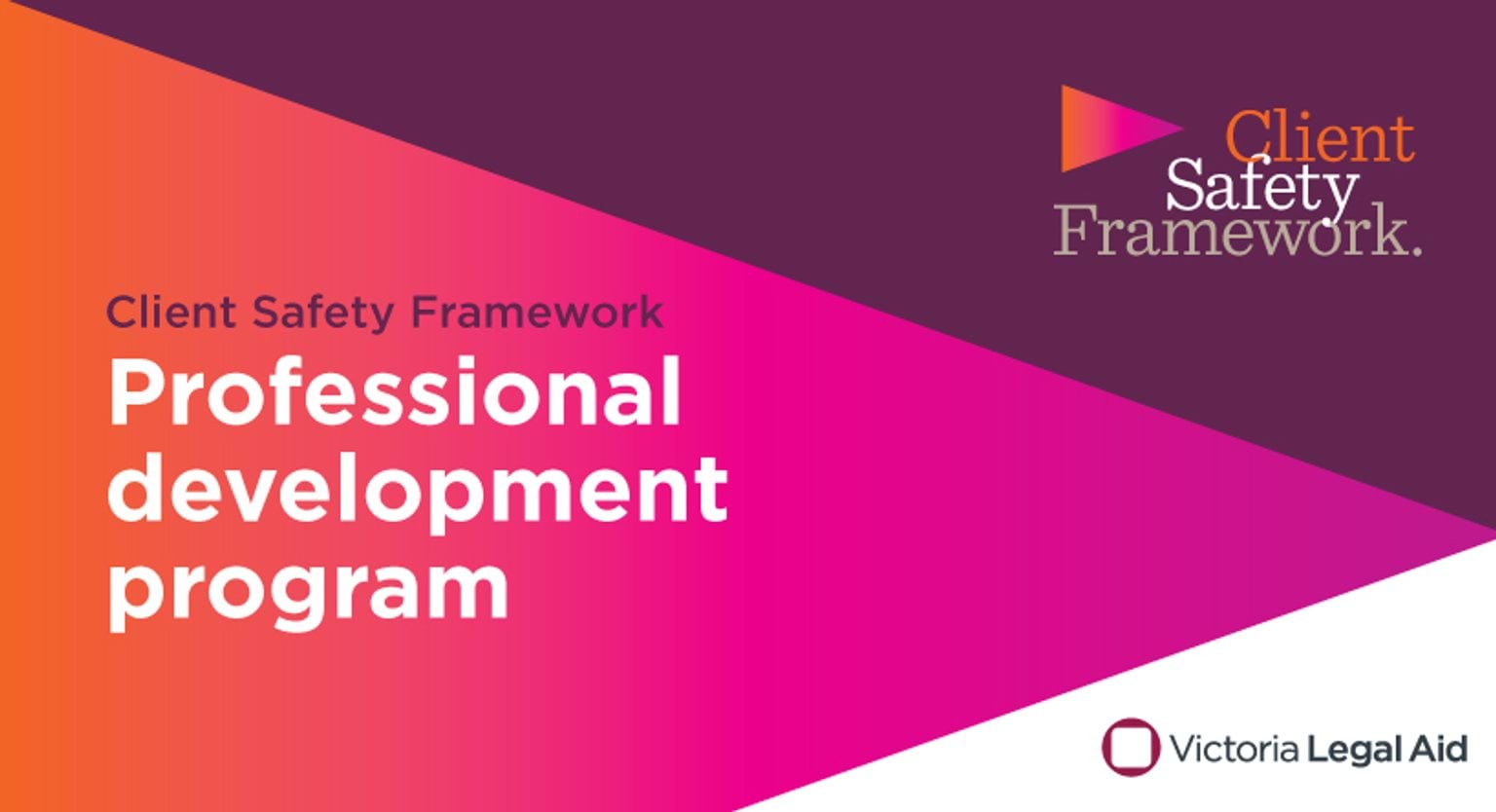- Published:
- Wednesday 20 November 2024 at 7:04 am

The Client Safety Framework (CSF) is our flagship family violence professional development series, designed for all lawyers and client facing staff.
Associate Director Sharika Jeyakumar from our Family Violence Response, Projects and Innovation team, says family violence is present in most legally aided matters.
‘That’s why this training is critical – whether you are assisting with a family law, criminal or civil justice matter, it’s essential to be able to recognise intersections with family violence in those contexts,’ Sharika said.
‘This training will teach you how to recognise and respond to family violence and to apply this lens when you’re working with people experiencing or using family violence.’
‘It was really informative and gave me a huge insight into what family violence really is.’ (participant feedback)
About the training
The six modules are practical and engaging, providing realistic case studies and client conversations for you to work through.
The first four modules explore the foundations of family violence and suicide risk identification and response.
Two more recent modules address a gap in training around working with First Nations clients and with culturally and linguistically diverse communities with family violence legal needs.
Each module takes approximately one hour to complete and accrues one continuing professional development (CPD) point.
‘This is such a wonderfully put together module. I really enjoyed listening to the 'talking heads'. Their stories really resonated with what I've observed in my practice.’ (participant feedback)
Sharika suggests completing the modules gradually over several weeks or months.
‘Spacing out the modules will help you make the most out of the learnings,’ says Sharika.
‘With the release of new modules in 2023, we have also been able to unlock the order, so you can start with any of the modules that might be most helpful to you right now.
‘All modules accrue one CPD point each, so we encourage you to prioritise these modules as part of your professional development.’
‘I particularly thought the training on how not to collude with violence supporting narratives very good. I have not seen training on this before.’ (participant feedback)
Collaborating with lived experience advisors and subject matter experts
The CSF is unique in providing family violence training specifically for legal services staff.
Each module has been developed in collaboration with lived experience advisors and subject matter experts to ensure best practice content.
This includes working with:
- Safe Steps
- No to Violence
- Women’s Legal Service
- Boorndawan Willam Aboriginal Healing Service
- inTouch Multicultural Centre Against Family Violence.
Sharika says learning from and incorporating the insights from specialist services and our lived experience advisors has been a wonderful process.
‘Because of this, the training is nuanced, practical and trauma-informed, to ensure we are not causing further harm to our clients.’
'I now not only have the knowledge and understanding of how to identify and recognise people at risk of family violence, suicide and my own vicarious trauma, but also the tools to respond in a best practice way to ensure our clients feel supported and that I am ensuring I am adhering to my duty of care to our clients.’ (participant feedback)
Access the training
Access the training via the Learning Hub (VLA staff) or LawHub (panel practitioners).
More information about family violence
Learn more about our response to family violence.
My safety tool is also available to plan for your safety and separation when experiencing domestic, family or sexual violence.
Updated

